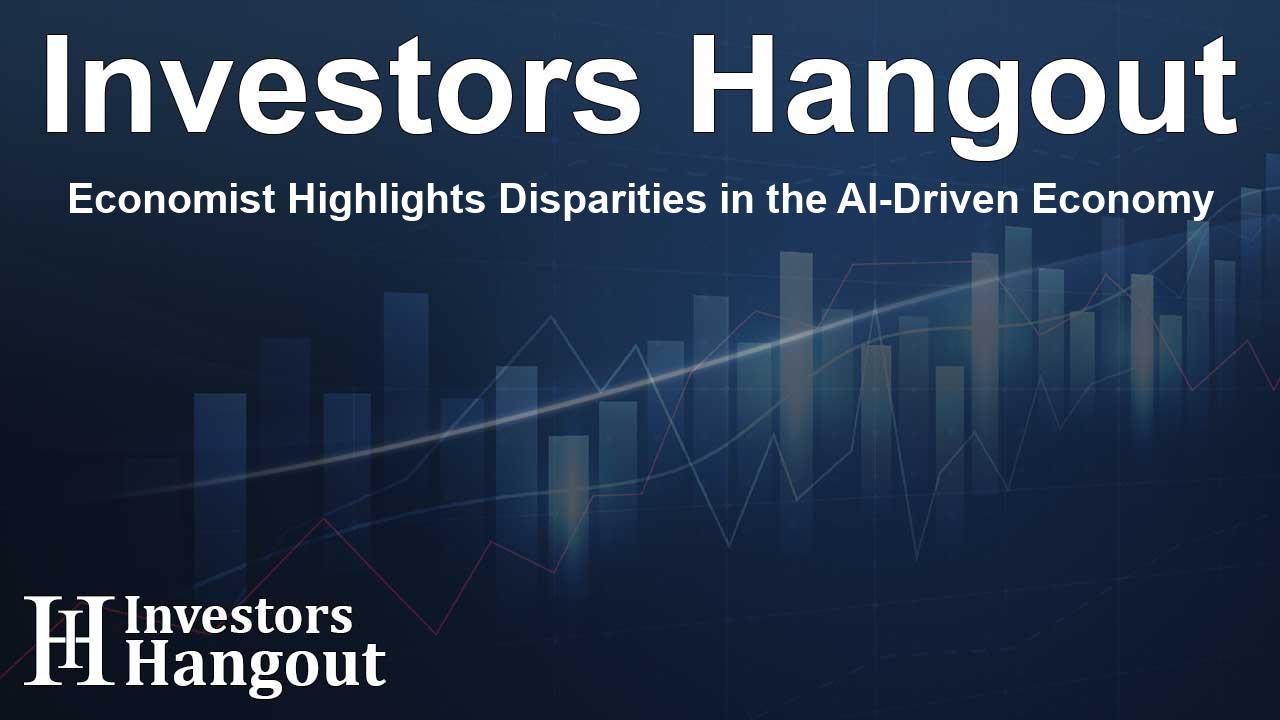Economist Highlights Disparities in the AI-Driven Economy

The Divergence of Economies: A Candid Perspective
Economist Justin Wolfers recently shared alarming insights in a CNN segment, suggesting that the U.S. economy is currently experiencing a divide—functioning as 'two economies'. He posits that the significant boom in Artificial Intelligence (AI) is overshadowing substantial weaknesses in other sectors of the economy.
AI Growth vs. Economic Vulnerability
Wolfers articulated a critical viewpoint, stating that without the surge in AI-related investments, the nation faces the brink of a recession not driven by AI advancements. He noted, "The economic data right now doesn’t look too bad," but urged listeners to recognize the illusion this creates.
This optimistic facade is primarily due to vast investments in AI, particularly in data centers, he emphasized. To illustrate his point, he mentioned, "If you took that out of the numbers and just examined the non-AI sections of the economy, it’s basically flatlining." His insights are shared in collaboration with fellow economists Natasha Sarin and Jason Furman.
Job Market Realities Amidst AI Investments
Wolfers further questioned whether the AI boom is truly beneficial for job growth. Despite the influx of capital into AI infrastructure, its ripple effect on employment is limited. “That AI boom doesn’t create a lot of jobs because if you’ve ever been inside a data center, you don’t see many workers. Instead, you mainly observe machines at work,” he noted. This reliance on highly automated, capital-intensive sectors poses a significant risk to the economy's broader stability.
According to Wolfers, the economy's current stability seems to be more a product of chance rather than effective economic policies. He highlighted, “We are in some sense lucky to be held up by AI at this moment,” expressing concern that the encouraging headline figures exist despite, rather than as a result of, the current administration’s economic strategies.
Investment Opportunities in AI-Linked Exchanges
As technology continues to thrive, investors might want to explore various AI-linked exchange-traded funds (ETFs). Here are some noteworthy options:
Available AI-Linked ETFs
- iShares US Technology ETF (NYSE: IYW): YTD Performance 20.84%, One Year Performance 22.79%
- Fidelity MSCI Information Technology Index ETF (NYSE: FTEC): YTD Performance 18.55%, One Year Performance 21.26%
- First Trust Dow Jones Internet Index Fund (NYSE: FDN): YTD Performance 13.26%, One Year Performance 26.02%
- iShares Expanded Tech Sector ETF (NYSE: IGM): YTD Performance 21.50%, One Year Performance 25.28%
- iShares Global Tech ETF (NYSE: IXN): YTD Performance 20.75%, One Year Performance 20.75%
- Defiance Quantum ETF (NASDAQ: QTUM): YTD Performance 28.78%, One Year Performance 65.36%
- Roundhill Magnificent Seven ETF (BATS: MAGS): YTD Performance 15.93%, One Year Performance 32.22%
Recently, the S&P 500 index recorded a decline of 2.71%, closing at 6,552.51, while the Nasdaq 100 decreased by 3.49% to settle at 24,221.75. The Dow Jones also fell by 1.90%, concluding at 45,479.60. However, futures for the S&P 500, Dow Jones, and Nasdaq 100 began trading positively on the following Monday.
Frequent Economic Discussions and Observations
Discussions revolving around economic strategies and the impact of global trends continue to spark significant interest among economists and investors alike. As uncertainties loom, navigating through the economic landscape will require critical analysis and informed decision-making.
Frequently Asked Questions
1. What did Justin Wolfers mean by 'two economies'?
Wolfers refers to a division where the AI sector is thriving while other economic sectors are struggling, leading to a misleading overall economic outlook.
2. Why does Wolfers believe a non-AI recession is imminent?
He argues that without AI investments, economic conditions would appear stagnant, indicating vulnerability in the broader economy.
3. How does AI affect job creation, according to Wolfers?
Wolfers suggests that while AI boosts economic growth, it does not significantly contribute to job creation due to high automation levels in AI infrastructures.
4. What are some AI-linked ETFs recommended for investors?
Investors may consider ETFs like iShares US Technology ETF (IYW) and Fidelity MSCI Information Technology Index ETF (FTEC).
5. What recent trends have been seen in the stock market?
The S&P 500, Dow Jones, and Nasdaq 100 experienced declines but futures indicated potential recoveries in the following trading sessions.
About The Author
Contact Logan Wright privately here. Or send an email with ATTN: Logan Wright as the subject to contact@investorshangout.com.
About Investors Hangout
Investors Hangout is a leading online stock forum for financial discussion and learning, offering a wide range of free tools and resources. It draws in traders of all levels, who exchange market knowledge, investigate trading tactics, and keep an eye on industry developments in real time. Featuring financial articles, stock message boards, quotes, charts, company profiles, and live news updates. Through cooperative learning and a wealth of informational resources, it helps users from novices creating their first portfolios to experts honing their techniques. Join Investors Hangout today: https://investorshangout.com/
The content of this article is based on factual, publicly available information and does not represent legal, financial, or investment advice. Investors Hangout does not offer financial advice, and the author is not a licensed financial advisor. Consult a qualified advisor before making any financial or investment decisions based on this article. This article should not be considered advice to purchase, sell, or hold any securities or other investments. If any of the material provided here is inaccurate, please contact us for corrections.
